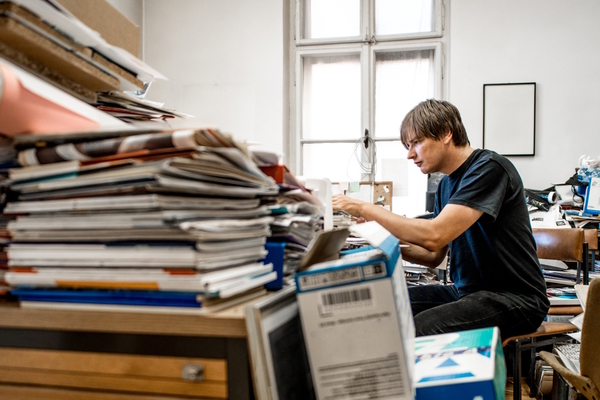The future of product development: Research as a strategic advantage
Sponsored by MazeDiscover the business trends shaping how product teams leverage research for a strategic advantage in product development.

How do organisations ensure they’re not just keeping up but leading the pack?
When every company is now a software company, getting to the right product first decides the winners from the laggards.
But it’s not just about building products faster. What matters most is a company’s ability to adapt to changing user needs on an almost continuous basis to go to market with the right product faster than competitors.
The answer to achieving this lies in research.
It involves understanding your users and gathering actionable insights that pave the way for continuous innovation and growth. Simply put, the more organisations learn, the stronger their decision-making becomes.
So, how do product organisations learn? How is user research evolving?
Based on responses from over 1,200 product professionals, Maze’s Future of User Research Report aims to answer these questions. Read on to discover the trends shaping the future of product development and how research is becoming the strategic advantage for forward-thinking organisations.
Organisations are leveraging user research to make informed decisions and drive business performance
From tech to financial services and healthcare companies, every company that wants to win is putting an increased focus on learning from its users every step of the way.
According to our latest industry report, research is used at all stages of the product lifecycle, including problem discovery (76 per cent), validation and testing (74 per cent), post-launch review (48 per cent) and solution development (45 per cent).
User research is not a one-time activity but rather an ongoing process that informs iterative product improvements and decisions. By regularly gathering and analysing user feedback, organisations can stay attuned to evolving user needs and preferences, allowing them to adapt their product offerings accordingly.
While design (86 per cent) and product (83 per cent) teams rely on user research to make decisions the most, increasingly, more departments across the entire product lifecycle, such as marketing (35 per cent) and executive teams (27 per cent) are following suit.
This leads to more holistic and better-informed outcomes.
Our findings back this up. 85 per cent of respondents said this increased focus on research leads to improved product usability, customer satisfaction (58 per cent), and customer engagement (44 per cent).
AI is bringing research up to the speed of product development
As more teams rely on user research, it is not exactly a surprise that bandwidth becomes the top concern. New technology, such as artificial intelligence (AI), will allow product teams to scale research significantly in the years to come.
AI is levelling the playing field for all organisations, and enabling everyone in a product team to run research studies.
In fact, 44 per cent of product professionals Maze surveyed are already using AI to conduct research. The most common AI use cases include tactical aspects of research such as data analysis and transcriptions.
By taking over the more time-intensive tasks, AI empowers product teams to get insights at the speed of development. Plus, it frees UX researchers to focus on strategic research projects—answering key questions that all businesses need to answer, like “What insights do we need to decide on our business strategy?”

The more organisations learn, the stronger the decision-making
As the appetite for user insights grows, the report shows that in addition to researchers, product designers (61 per cent), product managers (38 per cent) and marketers (17 per cent) conduct user research at their companies.
Building a democratised research culture where different teams are empowered to engage in research leads to better decision-making.
In fact, we found that teams with a democratised research culture are two times more likely to make strategic decisions based on user research. This makes sense since the more people are involved in research, the more they buy in and use the results to inform their decision-making.
One product researcher said, “Democratising research has allowed our team to delegate tactical research (such as usability testing) to designers, allowing us to focus on more complex research initiatives. This has increased decision speed.”
The role of the UX researcher is shifting from a purely technical role to an educational role responsible for guiding and empowering the organisation in its learning. With their expertise, and empowered by specialized tools such as Maze, organisations can take the reins and make research available to every product team.
Turn research into your product team’s strategic advantage
As more organisations leverage user research to navigate the changing market landscape, the relationship between research and product development is clear. The more organisations learn, the better equipped they are to innovate and succeed.
Research provides the right insights at the right time and drives conversations about what to build, who to target and how to win as a business.
This is how organisations remain competitive and defensible against competitors, major economic shifts, and large-scale change – by harnessing the voice of the user at scale.
Want to learn more about the trends shaping how product teams learn and build successful products in 2024 and beyond? Get The Future of User Research Report for free here.
About Maze
Maze is the user research platform that makes products work for people. Maze empowers any company to build the right products faster by making user insights available at the speed of product development. Built for ease of use, Maze allows designers, product managers, and researchers to collect and share user insights when needed most, putting them at the center of every decision.
For more information on Maze, visit www.maze.co.
Jonathan Widawski, CEO and Co-founder at Maze
Jonathan Widawski is a veteran product designer and former UX teacher. As a UX lead working with clients such as McKinsey, Rocket Internet and PSG, he saw first-hand how hard it is for product teams to get the data, insights and feedback they need to make confident product decisions. Now he’s co-founded Maze, a user research platform to enable companies of all sizes to learn fast and collect insights at scale.

Business Reporter Team
Most Viewed
23-29 Hendon Lane, London, N3 1RT
23-29 Hendon Lane, London, N3 1RT
020 8349 4363
© 2024, Lyonsdown Limited. Business Reporter® is a registered trademark of Lyonsdown Ltd. VAT registration number: 830519543





